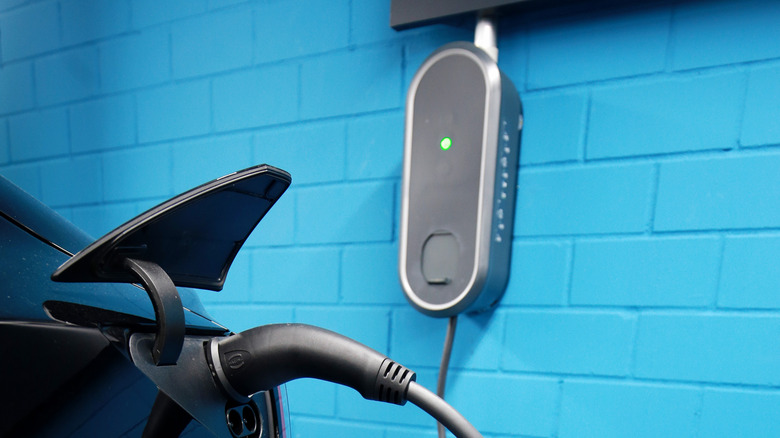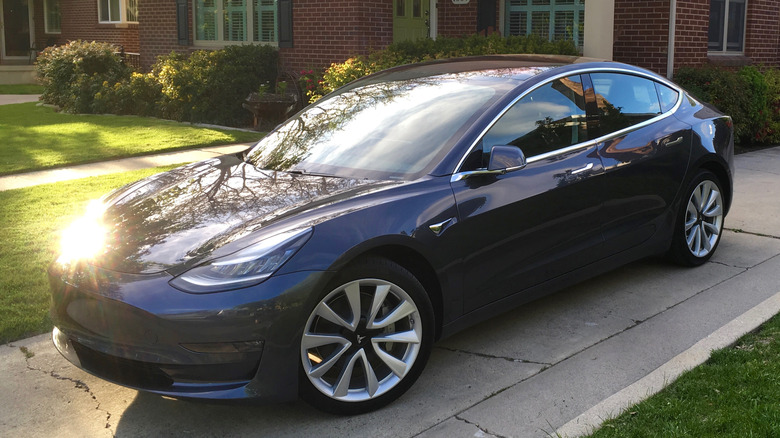Charging Your Tesla Model 3 At Home: How Much Will It Cost You?
The cost and convenience of charging is a major concern for car buyers interested in electric vehicles. In a recent poll of Slashgear readers, almost half of respondents noted either charging cost and time, or the potential inability of power infrastructure to meet the needs of EV drivers, as the primary issue keeping them from buying an electric car.
The concern isn't unwarranted: EVs depend on home charging for the kind of long-range reliability drivers have come to expect from gas-powered rides. That represents a major investment, on top of the usual expenses of car ownership. Especially if you live in a rural or suburban community that doesn't have the largest or most expansive infrastructure of public chargers, the technological and financial feasibility of home charging is oftentimes make-or-break for electric vehicle buyers.
Here's how much drivers can expect to pay to charge a Tesla Model 3 on home electricity.
Home power revolution
Per Tesla, a Model 3 on a home-based wall charger recharges at a maximum of 44 miles of range per hour of charging, and its maximum range on a full charge is 358 miles. That's a shade more than eight hours, ideally, to take a Tesla Model 3 from a dead battery to full charge. According to Tesla's charging calculator, a full charge of the Model 3's battery should run around $14. It's important to keep in mind, however, that Tesla is basing this on a national average electricity price of $0.16 per kilowatt-hour, so the exact cost will fluctuate with residential electricity pricing in your area.
Of course, 300 miles worth of standard gas generally costs quite a bit more than $14. At the same time, the price-per-mile of Tesla models and other EVs comes with one massive asterisk: the charger itself. A standard wall charger currently costs $425 at the Tesla online store, and expert installation can cost anywhere from $750 to over $1000.
Even with that upfront cost, the Tesla Model 3 is consistently less expensive to power and maintain than gas-powered peers. Electricity is inexpensive compared to gas, savings that are compounded by the fact that most EV owners never come close to draining their battery in daily driving.

